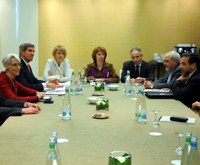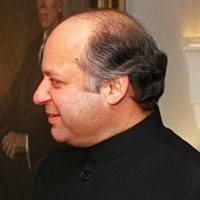
China’s decision to establish an air defense identification zone (ADIZ) that encompasses its disputed islands with Japan is yet another attempt to expand its territorial claims by presenting neighboring countries with a fait accompli. These power plays aim to augment China’s regional position over time without provoking a major military confrontation or countervailing coalition. But in this case Beijing may have overreached and scored an own goal. Over the past few months, China has engaged in a sustained diplomatic campaign to exploit tensions between Seoul and Tokyo. As part of this effort, Beijing has deftly used its influence over North […]






